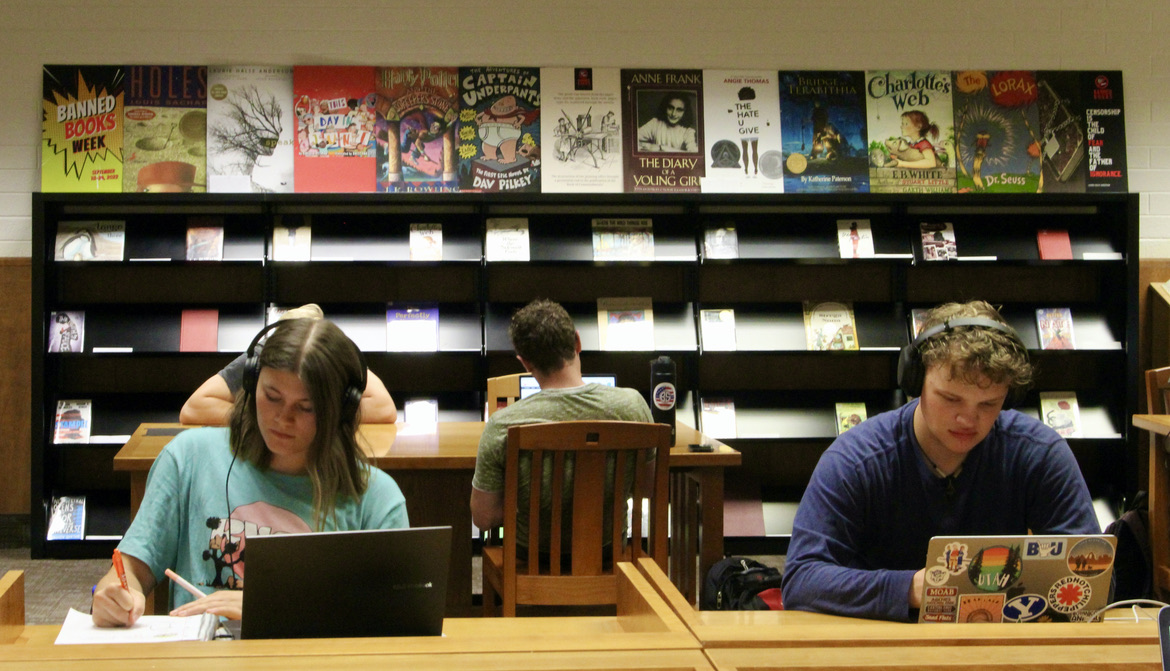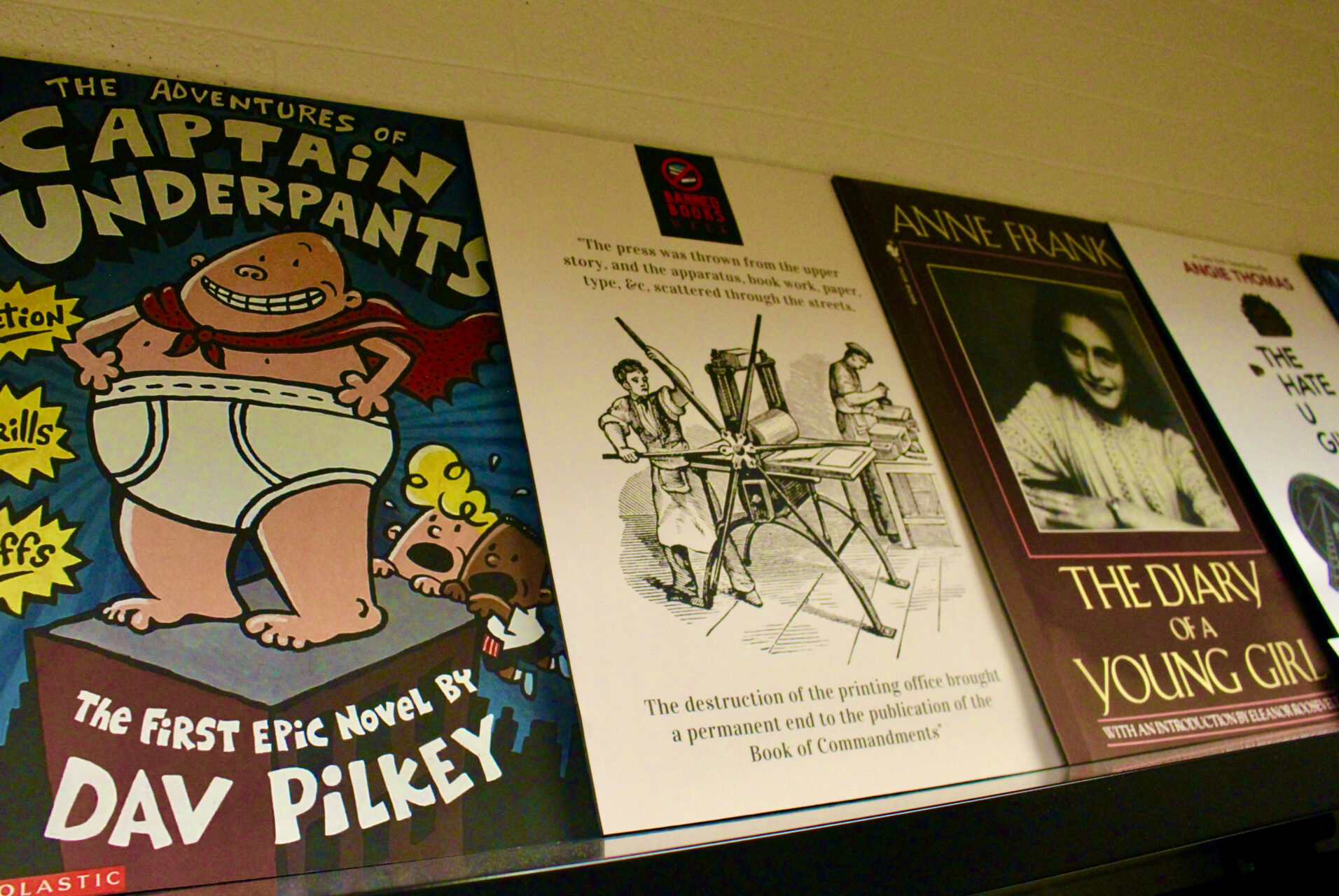
The Harold B. Lee Library organized a display of banned books on the first floor of the library for Banned Books Week, a campaign that celebrates literary freedom and draws attention to banned and challenged books, from Sept. 18-24.
The shelves featured a range of books from “The Diary of a Young Girl” by Anne Frank to more recently published children’s books such as “This Day in June” by Gayle E. Pittman.
According to the American Library Association, books have overwhelmingly been banned or challenged because of sexual content, offensive language, religious viewpoints and LGBTQ content.


HBLL communications manager Roger Layton explained that the BYU library mainly functions as a research library, so the content they collect is to support the curriculum on campus.
“Occasionally we’ll get complaints, but it’s not very often…” Layton said. “I’ve heard of people saying ‘Wait, there’s a book [on campus] and it has a lot of bodies in it?’ And people are like, ‘Yes, that’s an anatomy textbook.'”
Macey Gwynn, a junior studying sociology, said her favorite book is “Their Eyes Were Watching God,” by Zora Neale Hurston, a novel that has historically been challenged for its sexual explicitness.
“It doesn’t surprise me that messages about race and messages about sexuality are being banned and not being shared even though they are experiences that real-life people have,” Gwynn said.
Annakate Madsen, a senior studying elementary education, is in her last year before she starts student teaching. For her program, Madsen took a children’s literature class where she learned about banned books.
“It makes me sad because… a lot of the books we talked about in my class can teach children so much,” Madsen said. “It’s sad that there isn’t freedom for what a teacher can have in their classroom.”


Both Layton and the university librarian, Rick Anderson, said no books have been banned at BYU to their knowledge.
“It’s very unusual for someone to ask us to remove anything from our collections,” Anderson said. “In any such case…we would base our decision on whether the item is relevant to the curricular and research needs of BYU students and faculty.”
Anderson explained that the BYU library adds tens of thousands of items to its collections every year.
“These are primarily selected by subject librarians, qualified professionals who apply their expertise in relevant disciplines to align collection development with the curricular and research needs of BYU students and faculty,” Anderson said.
Anderson said that because of the breadth of the library’s mission and its research orientation, the library’s collections do include materials that some may find challenging or offensive.
Colin Peacock, a sophomore studying mechanical engineering, said that books that challenge someone’s perspective are the exact books that people should read.
“I feel like the idea of banning books is like never a good thing, especially because that’s like half the message of half of these [banned] books,” Peacock said.
Peacock said that two of the books he read in high school, “1984” and “Fahrenheit 451,” were specifically about censorship and it was ironic that they in turn had been censored.

“I feel like one of the most central purposes of reading books is to put you in somebody else’s shoes, to give you perspectives outside of your own,” Peacock said. “That’s one of the most powerful things that literature does because it can expand your character… and your ability to interact and understand others.”
At the library, Layton and Anderson welcome feedback about their collections.
“Because our mission is to support BYU students and faculty, we especially seek input from members of the BYU community,” Anderson said.
The HBLL has a form to suggest content for the library, as well as a form to ask the library to reconsider materials.




